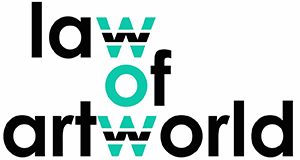
The concept of copyright and its scope changes much between the countries following the legal tradition of common law and civil law countries.
Nevertheless, the existence of international treaties on the subject, ratified by a vast number of states, has helped to standardize this issue a little more, which is particularly marked in the case of the EU, where we must also consider the presence of communitarian rules.
A critical distinction in intellectual property is the separation between the sphere
of the moral rights and rights of economic content.
► Moral rights seek to protect those aspects granted to the author by the mere fact of being it, which links him to the created work in a direct and intellectual manner. These rights are mainly focused on the recognition of authorship, the possibility of making changes to the work, deciding whether or not to disclose it, demanding recognition and integrity, banning nonconsensual changes, removing the work, or denying access to the copy of his work to third parties. This set of rights is irrevocable and inalienable, so they belong to the author at all times, and there cannot be an agreement to the contrary. In some cases, even these rights go to the author’s heirs after his or her death.
► Meanwhile, the economic rights focus on acts of disposal for making a profit out of the works. This is specified when there is the possibility of reproduction, distribution, public communication, and transformation, which, although they can be transferred to third parties, require the prior consent of the author.
The legislative treatment of Intellectual Property is a complex and extensive matter. We must add to this regulation the fact that works, as well as being subject to copyright, are also subject to other economic rights, such as the ownership of the buyer over the object, or other derivative rights. This means that the regulatory framework tends to become complicated, and the number of people who hold rights over the same piece, is variable.
In this regard, the following points are important:
► The scope of the copyright on his own work that is owned by a buyer
► Compensations when the author uses any of his moral rights to harm the current owner of the work
► What can and can’t the owner do about the artwork purchased?
► How are the image rights of the works, which are acquired by a third party, managed?
► What if the use of the image is made by a person different from the owner?
► In the case of works in which the protection of copyright is already extinguished, can the current owner exploit them economically?
► Is there some kind of responsibility to the owner if these rights are not respected?
